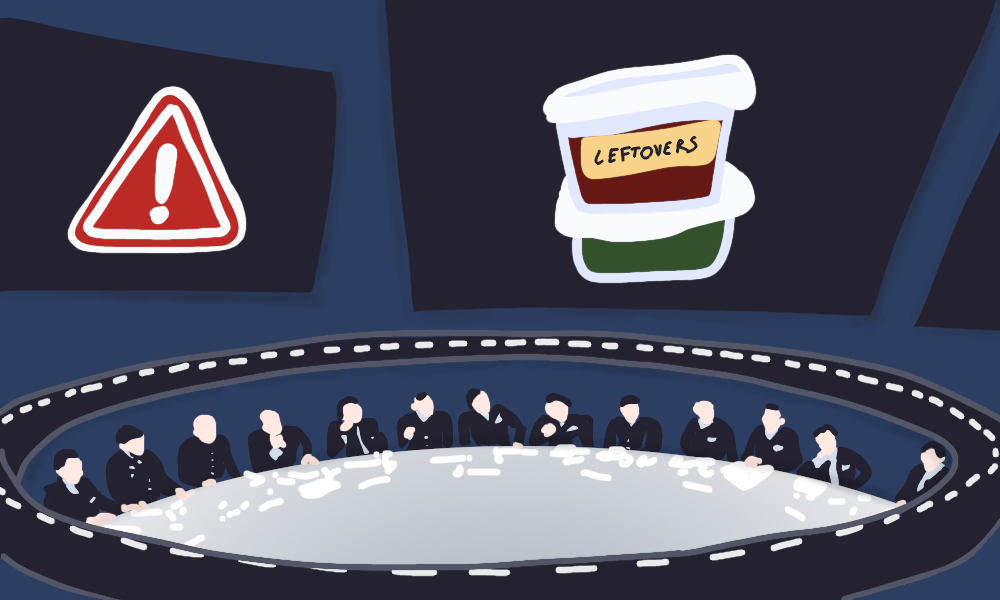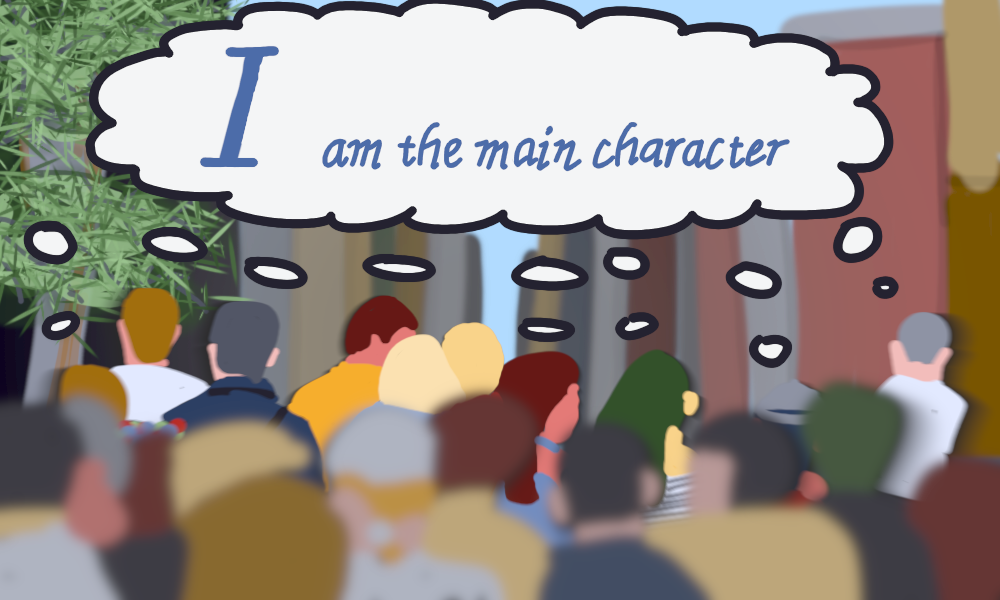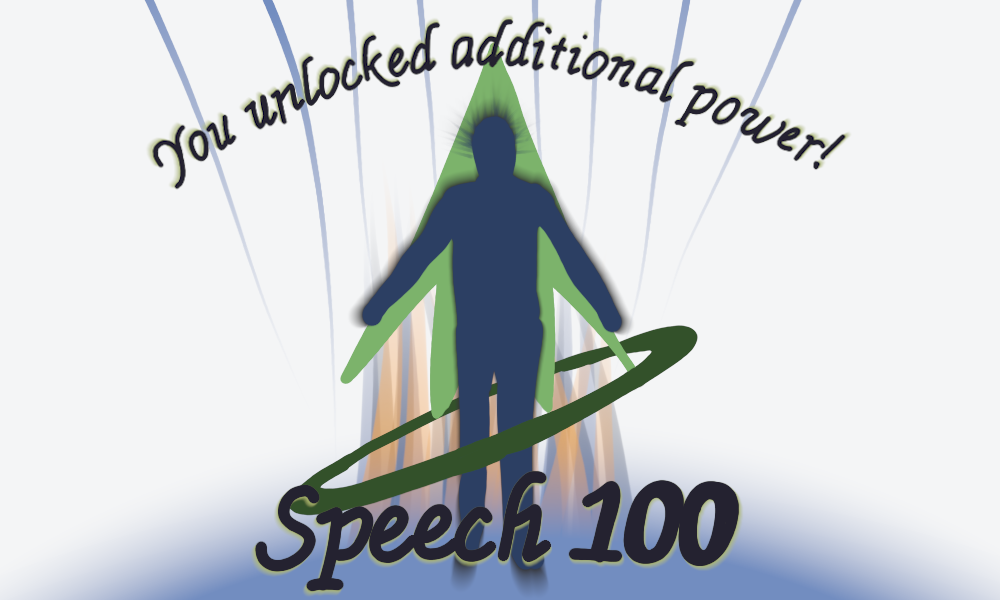
You can learn to Speak Confidently
If speaking confidently doesn't come naturally to you, you're not alone. When someone stands up and captivates an audience, it's easy to sit there and wonder what makes them different. What makes them so confident, standing there like it's the most natural thing in the world? Why can't I feel as calm and in-control as they do?
I'll let you in on a little secret: I am that person, but I don't feel calm and in-control. I livestream myself coding 5 days a week, I give tech talks, and I've spent a career explaining to senior managers why they're completely wrong. Despite that, I'm actually a shy anxious introvert.
Speaking Confidently is an action, not a feeling. A confident speaker is someone who portrays confidence when speaking, not someone who feels confident doing it. That means you don't need to try and change how you feel, just how you act. Thankfully, out of the two, changing how you act is much easier!
Before we start, please consider whether I'm the right person to give you this advice. This post is all about my experience, which might not be applicable to you. I'm a young white guy in tech, which makes it much easier to seem confident. The less similar we are, the less useful my advice is.
This post is split into two parts. First, we'll discuss how you can look confident when speaking. Then, we'll cover how you can calm your nerves and stop panicking quite so much. I'd love to say that I can help you feel confident, but that's a lie, and it just comes with practice. Instead, we'll cover a few coping methods to help you stay composed.
Take an Improv Class
If you want to learn how to act confident, first you'll need to learn how to act. At university, I joined an improvised comedy group, and even performed on stage at the Edinburgh Fringe Festival. Out of everything I talk about in this post, I think that improv is the most important.
It forces you to analyse your body language, voice, and how you present yourself. It makes you think about the core aspects of a character, how they would behave in a given setting, and how you could copy their mannerisms. Once you get in the habit of watching body language and voice, it becomes something you can decide.
If you can play a confident character on stage, you can do it everywhere.

So why improv specifically, and not just theatre? A core aspect of improv is putting you in new situations with little time to react. You need to think on your feet and take everything in your stride, without breaking character. If that makes you nervous, improv forces you to get comfortable with it.
While improv did help me learn how to act, it also gave me the tools to understand a character, which is much more valuable. If I've convinced you to try improv, stop reading now and go join a class instead. Rather than just using my mental model for confidence, it'll feel easier if you develop your own.
Analysing Confidence
This section will talk about how I think of confidence, in a very abstract sense. Most other posts about how to speak confidently will skip this bit, and just give you little tips like 'give a firm handshake'. That feels helpful, but you don't actually understand why that projects confidence. When you have a framework, you can think of your own tips, and find things that work for you.
Confidence is about over-estimating your power
In any conversation, people have different amounts of power - the ability to control and influence the situation. In a round-table discussion between equals, confident people tend to speak more than nervous people. Speaking, and making your voice heard, is one way of influencing the situation. In other words, despite the fact that everyone should be equal, the confident people ended up high-power.
In that situation, the power dynamic is actually explicit, and the chair should step in to reinforce it. They'll tell the confident people to stop talking for a minute, and ask the nervous people what they think. As the most dominant person in the room, the chair has a lot of control over the situation, and uses it to declare that everyone else is valued equally.

By forcing the confident people to stop and let others speak, the chair is establishing where everyone sits in the power dynamic. Typically, confident people do over-estimate their power, but in most situations nobody will correct them. Instead, everyone just accepts that the person is high power, and it stays that way.
To look confident, you have to over-estimate your power, and take control of the situation. Act like you know everyone cares about your ideas, and influence the environment to reinforce that.
A Warning
Power dynamics are a touchy and ever-changing subject, especially when you start to deal with prejudices like racism or sexism. Over-estimating your power makes you look confident, but going too far makes you look arrogant. You need a good understanding of how much power you really have, to know how much you can push it. That depends on the situation, and varies significantly between cultures.
If you're a minority in the situation, or it feels like you don't fit in, you might be in a very low-power position by default. In that case, trying to use the tips I'm about to tell you will be too much and you risk being perceived as rude or entitled. If you're in a low-power position, you can look confident by just acting like equals.
5 Tips for Acting Confident
I'm not going to talk about power dynamics directly in this section. It's not the kind of thing people explicitly think about, so I'll sound like an alien. It would also make the tips seem much more daunting than they really are - you're already nervous, and talking about power struggles will just make it worse!

Instead, I'll frame these tips as how a confident person might influence the situation they're in. For each tip, you can still think for yourself about how we signal a high-power position, and what it does to the dynamic. This isn't a complete list of everything you might want to do, just a few ideas to get you started.
Own the Space
Nervous people tend to make themselves physically smaller, crossing their arms and legs. The opposite is also true. A confident person is used to being the center of attention, and will naturally act like it:
- At an interview, get up and start drawing on their whiteboard to explain your point.
- At a presentation, walk around the room and sit on a table.
- In a meeting, speak up and ask a quiet person what they think.
Don't Dress Up
If there's an unspoken dress code, like wearing a suit to an interview, you could just decide not to. As a confident person, you know you'll be taken seriously either way. You don't want to be disrespectful, so just try and blend in with the other people there. In many offices, that would mean jeans and a shirt, while a lot of tech companies wouldn't bat an eye if you turned up in shorts and a Hawaiian shirt!
Start Asking the Questions
When you get asked a question, it's very easy to feel like you're back at school taking a test. As a confident person, you see that as an opportunity to start a conversation, and open a dialog. Turn the tables and ask a follow-up to their question.

If you're asked how a specific technique works, answer the question and then ask whether it's something they've used before, how their experience was, and whether it's something they'd do again. Ask a follow-up to that too! They might not have planned for the interview to be an open discussion, but you've decided for them.
Speak Clearly
Confident people tend to talk slowly and clearly, because they know that what they have to say is valuable. Slow yourself down, and speak from the chest, projecting your voice so that everyone can hear.
Frustratingly, we naturally speak quickly and quietly when we're nervous. Try recording yourself and playing it back at double speed. If you can't understand it, you need to slow down. That feels incredibly slow, but you'll speed up in the real thing due to nerves, so it all balances out.
Treat Superiors as Friends
Sometimes, the other tips will be too much. In a low-power position, where being the center of attention is too much to ask, confident people will expect to be seen as equals. To do that, they'll just be friendly, ignoring the context of the meeting as much as possible.
Remember the human.
Even if you're sat across from the CEO of a company, they still know how to have a normal conversation. It's not like they go home and talk about eating leftovers by saying:
Alright team, we need to give 110% tonight. We've put plan A on the backburner, so we need move the goalposts and circle back on actioning that tupperware. It's not best practice, but leftovers are our silver bullet today. Let's generate additional impact by leveraging the low-hanging fruit...

Treat them as equals, and go in with the mindset that you're there to have a chat with friends. They're probably just as fed up with the formalities as you are. That's not always the case, but even if they're confused by how friendly you are, it usually comes across as confidence.
You Can't Fake Knowledge
We've covered how you can pretend to be confident, but we need to talk about some of the ways you can feel calmer while doing it. The tips in this section won't directly help you speak confidently, they'll just make it easier to do the things that will help.
Nobody can read your mind, but when it comes to factual knowledge, thoughts and actions are the same thing. You can't tell someone a fact without knowing it - which means you can't fake knowledge. Sure, you could imply that you know a fact without actually knowing it, but that falls apart as soon as they ask you directly.
If you're terrified about being asked a question you can't answer, stop yourself and try to find the root of the problem. How much preparation have you done? Are there specific areas you don't know well enough? Is anyone actually in a position to contradict you? By understanding the cause, we can work on a solution.
If you're under-prepared, or need to revise specific areas, do more prep. That sounds simple, but there's no real alternative. The best way to feel calm before some public speaking is to be well-prepared. I'm not saying that you need a perfectly polished slide deck, with 50 pocket slides ready to go. In fact, many of my favourite presentations have been improvised with a whiteboard and pen. It's about having a thorough understanding of the topic, meaning that you can answer a question by going off on a tangent and starting a productive discussion.
If you're the expert, nobody is going to question you. If you're there to teach people something, and you know way more about it than they do, then you have nothing to worry about with factual knowledge. Don't try and pretend you know more than you do, because nobody is trying to catch you out with trick questions. Instead, just share your experience, your knowledge, and your thoughts.
If you're the newbie, be honest about it. When someone who is truly confident gets asked a question they don't know the answer to, they just admit it. At the start of this post, I confidently told you all about how I'm not a very confident person. Counterintuitively, that probably made you think I was more confident, rather than less. If you attended a talk and asked someone a niche question, which response would you rather hear?
That's a great question, and honestly it's not something I could confidently give you an answer for. Perhaps you could use X? Is this something that you're working on at the minute?
vs
I would use X.
Maybe you do prefer the second one, but imagine that you know X is the wrong answer.
In that case, the first option still makes me think more highly of the speaker, despite them getting the answer completely wrong.
The second one makes me stop listening.
If it's imposter syndrome, then it's not really about your knowledge. It's an incredibly common experience, worrying that everyone is going to learn that you're a fraud and not as good as you say. The topic is far too large for me cover in this post, but I have one piece of advice that could help:
Nobody Cares About You
I mean this in the best way possible. You can mess up spectacularly - stumble over your words, turn up late, take 5 toilet breaks - and nobody will remember except you. If you think that you're significantly worse than everyone else, it's because you have forgetten their failures and remembered your own.
You are the main character in your life, but a side character in theirs.

In the absolute worst case, it'll be a funny anecdote about an anonymous person, the details lost to time. They had bigger things to worry about, like whether you liked them, what you could see in the background of their webcam, and how long it was until lunch.
It's a 5-hour problem
When the worst happens, and it feels like the world is falling down around me, I have one technique I always turn to. I take a moment, collect my thoughts, and ask: 'how big of a problem is this?' The answer is usually 'Huge, life ending, literally the worst thing possible'. That's not very helpful, so I ask again with a list of options:
- A 5-minute problem
- A 5-hour problem
- A 5-day problem
- A 5-week problem
- A 5-month problem
- A 5-year problem
I'm asking how long it'll be until I don't care about it any more, even if the worst case scenario happens. The vast majority of the time, it's one of the first two - but no matter what the answer is, it's comforting.
A 5-minute problem won't matter soon. Go have a snack and wait it out. A 5-year problem can't be solved in a day, so you need to take a breath, take some time out, and come back to it with a fresh mind.

It forces you to stop panicking and put things into perspective. If it's a serious problem, it gives you a chance to figure out how you could try and fix it. If it's not as serious, it just reminds you that every bad situation will end.
Conclusion
Confident Speaking is something I learned, and it's something that you can learn too. It takes practice, and it takes a huge amount of self-reflection, but it's possible. If you take away one thing from this post, remember that speaking confidently is an action, not a feeling.
I hope this post helped you, and made it feel like learning to speak confidently is something you could reasonably achieve. It wouldn't surprise me if the title of this post was more helpful than anything else. A simple reminder that it's a skill, something you can practice, and something you'll get better at each time you try.

While this isn't the kind of thing I normally write, I felt like there was a real opportunity to help people. If it helped you, or if you just want to chat, please do get in touch!
